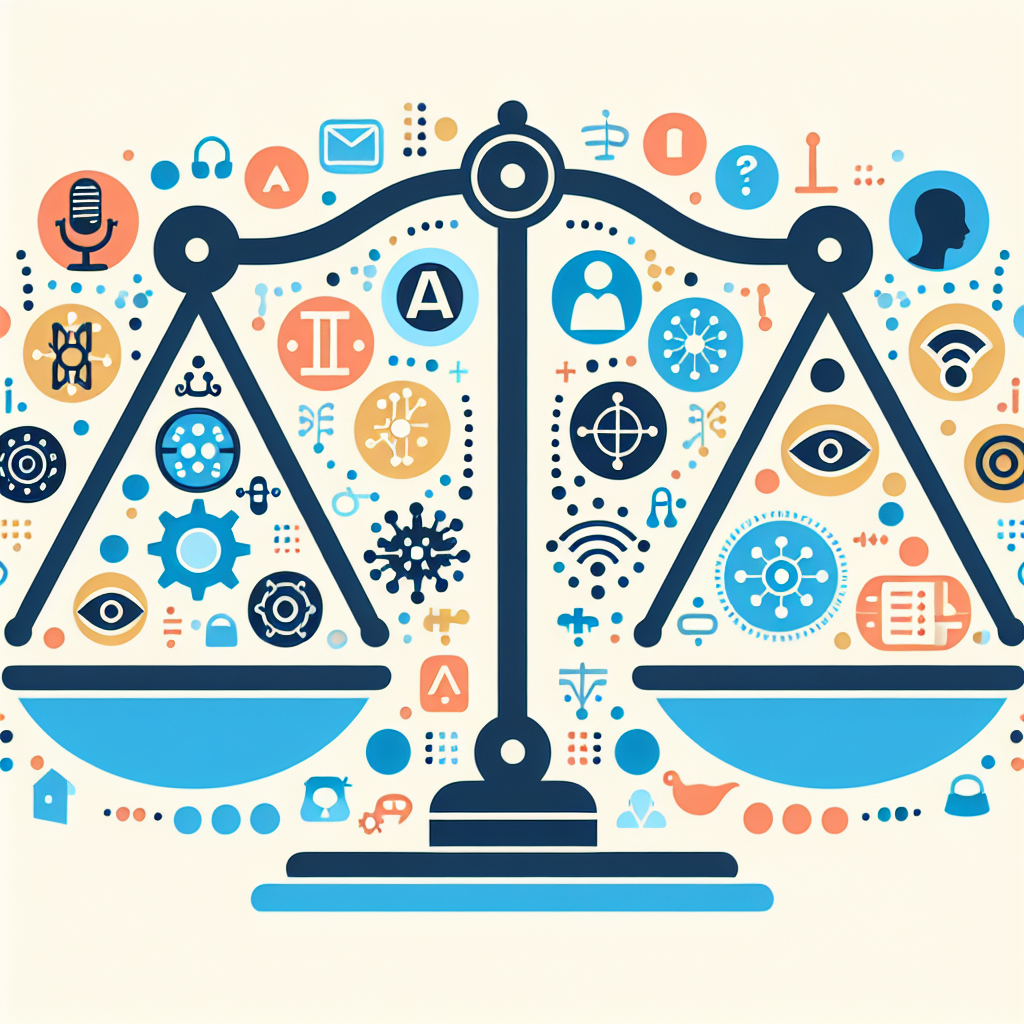The Ethics of AI in Customer Service: Balancing Automation and Human Touch
In recent years, artificial intelligence (AI) has become increasingly prevalent in customer service operations. From chatbots to virtual assistants, businesses are leveraging AI technology to automate and streamline their customer interactions. While AI can offer many benefits, such as faster response times and improved efficiency, there are also ethical considerations that must be taken into account when implementing these technologies.
One of the main ethical concerns surrounding AI in customer service is the potential loss of the human touch. Customers value personalized interactions and empathy, which can be difficult to replicate with AI. While chatbots and virtual assistants can provide quick and efficient responses, they may lack the emotional intelligence and understanding that a human agent can offer. This raises questions about the impact of AI on customer relationships and satisfaction.
Another ethical issue to consider is the potential for bias in AI algorithms. AI systems are only as good as the data they are trained on, and if that data is biased or flawed, it can lead to discriminatory outcomes. For example, an AI chatbot that is trained on historical customer data may inadvertently perpetuate biases against certain demographics. This can have serious consequences for customer trust and loyalty, as well as legal implications for businesses.
Furthermore, there are concerns about the impact of AI on job displacement. As AI technology becomes more advanced, there is a fear that human agents will be replaced by automated systems. This raises questions about the ethical responsibility of businesses to their employees, as well as the broader societal implications of widespread job loss in the customer service industry.
Despite these ethical concerns, there are also many benefits to be gained from AI in customer service. AI can help businesses provide faster and more efficient customer support, leading to increased customer satisfaction and loyalty. It can also free up human agents to focus on more complex and high-value tasks, such as problem-solving and relationship-building.
To navigate the ethics of AI in customer service, businesses must find a balance between automation and the human touch. This involves implementing AI technologies in a way that enhances, rather than replaces, human interactions. For example, businesses can use AI to handle routine inquiries and tasks, while reserving human agents for more complex or emotionally sensitive issues.
Businesses must also prioritize transparency and accountability when using AI in customer service. This includes being upfront with customers about the use of AI technology, as well as regularly monitoring and auditing AI systems for bias and other ethical concerns. By taking a proactive approach to ethics, businesses can build trust with their customers and ensure that AI is used responsibly and ethically.
In conclusion, the ethics of AI in customer service is a complex and multifaceted issue that requires careful consideration. While AI can offer many benefits, such as increased efficiency and customer satisfaction, there are also ethical concerns that must be addressed. By finding a balance between automation and the human touch, prioritizing transparency and accountability, and considering the broader societal implications of AI, businesses can navigate the ethics of AI in customer service responsibly and ethically.
FAQs:
Q: Can AI completely replace human agents in customer service?
A: While AI technology can automate many routine tasks in customer service, it is unlikely to completely replace human agents. Human agents offer empathy, emotional intelligence, and problem-solving skills that are difficult to replicate with AI. Businesses should aim to find a balance between automation and the human touch in customer service.
Q: How can businesses ensure that their AI systems are not biased?
A: Businesses can mitigate bias in AI systems by carefully selecting and monitoring the data used to train these systems. Regular audits and testing can help identify and address biases in AI algorithms. Transparency and accountability are also important, as businesses should be upfront with customers about the use of AI technology and any potential biases.
Q: What are the ethical implications of job displacement due to AI in customer service?
A: Job displacement due to AI in customer service raises ethical concerns about the responsibility of businesses to their employees. Businesses should consider the impact of AI on their workforce and take steps to retrain and reskill employees for new roles. Additionally, businesses should be mindful of the broader societal implications of widespread job loss in the customer service industry.
Q: How can businesses build trust with customers when using AI in customer service?
A: Transparency and accountability are key to building trust with customers when using AI in customer service. Businesses should be upfront with customers about the use of AI technology, as well as regularly monitor and audit AI systems for bias and other ethical concerns. By taking a proactive approach to ethics, businesses can build trust and loyalty with their customers.

